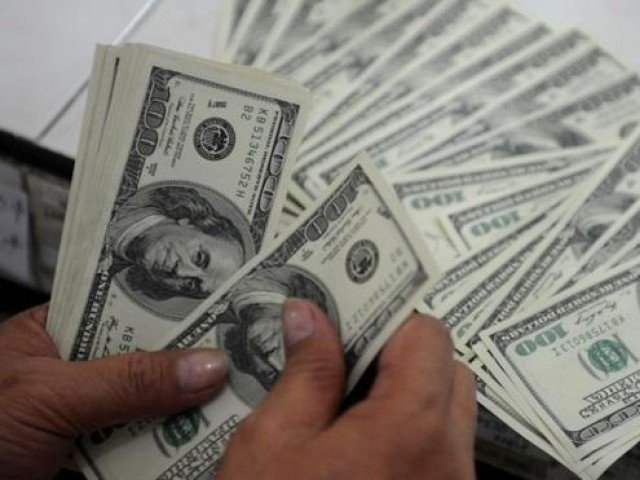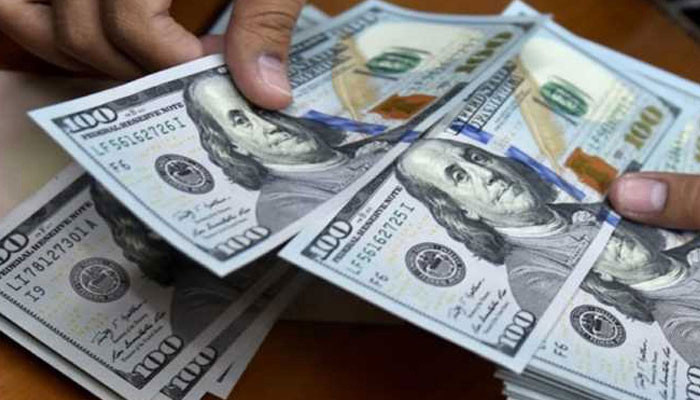Karachi: The dollar crossed Rs 282 in the interbank market, while the rate in the open market fell to Rs 284.
The dollar advanced after interbank fluctuations on Tuesday due to the new condition of the IMF’s financing arrangement from friendly countries to increase from 5 billion to 7 billion dollars and the increasing dependence of the government on local financing due to the impact of foreign financing. Continued.
Experts say that the fluctuations in the value of the dollar in the interbank market depend on the restoration of the IMF loan program, while due to the lack of demand in the open currency market, the advance of the dollar stopped and the dollar continued to depreciate. .
In the interbank market, the dollar had fallen by Rs 1.03 to Rs 280.57 at the beginning of the trading session, but after a few moments, the dollar fluctuated intermittently due to the free exchange rate and then started to soar again. As a result, the interbank rate of the dollar closed at the level of Rs 282.28 with an increase of 68 paisa at the end of the business.
On the contrary, in the open currency market, the dollar closed at the level of 284 rupees with a decrease of one rupee. Experts say that the foreign exchange markets are running on negative and positive news spreading in the country instead of supply and demand. Pakistan has so far missed the timeline of the IMF agreement and talk of releasing installments after the revival of the program is just floating around in the air.
Experts say that by June, Pakistan has to repay loans worth 3 billion dollars and so far China has emerged as the top friendly country providing financial facilities to Pakistan in the form of loans. Due to the economic crisis, capital circulation has stopped, despite restrictions on imports, the rupee is depreciating.
(function(d, s, id){
var js, fjs = d.getElementsByTagName(s)[0];
if (d.getElementById(id)) {return;}
js = d.createElement(s); js.id = id;
js.src = “//connect.facebook.net/en_US/sdk.js#xfbml=1&version=v2.3&appId=770767426360150”;
fjs.parentNode.insertBefore(js, fjs);
}(document, ‘script’, ‘facebook-jssdk’));
(function(d, s, id) {
var js, fjs = d.getElementsByTagName(s)[0];
if (d.getElementById(id)) return;
js = d.createElement(s); js.id = id;
js.src = “//connect.facebook.net/en_GB/sdk.js#xfbml=1&version=v2.7”;
fjs.parentNode.insertBefore(js, fjs);
}(document, ‘script’, ‘facebook-jssdk’));



